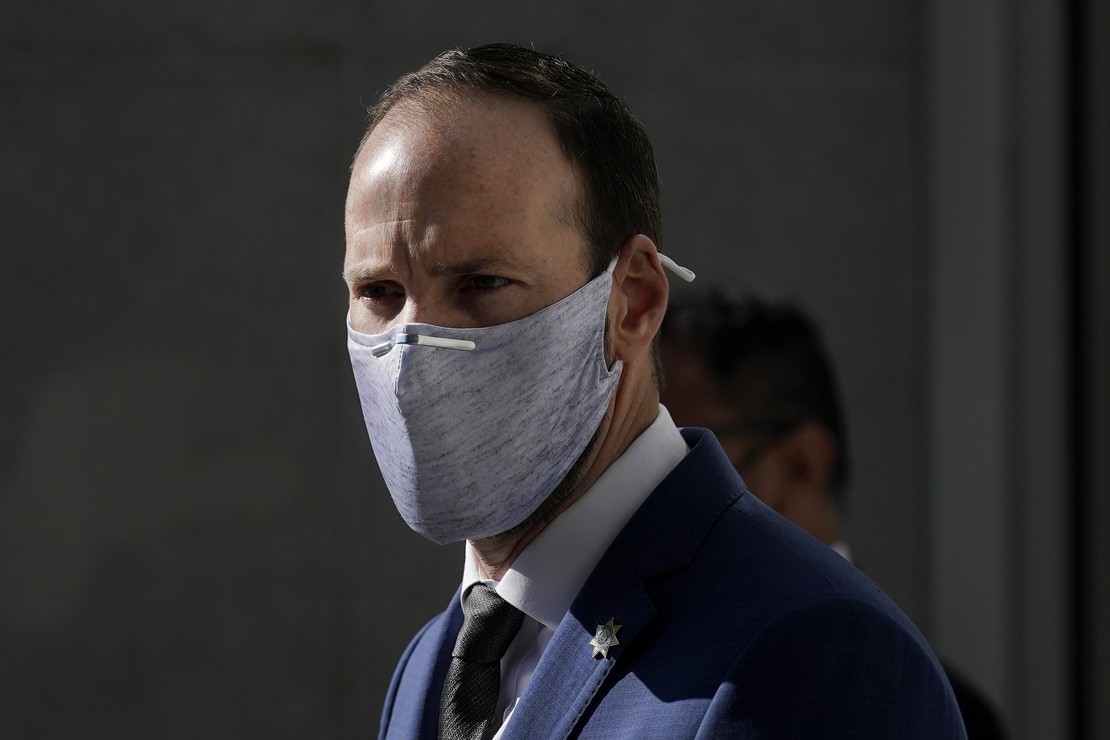
If California experiences “a political earthquake” in its primaries today, where precisely will the fault(line) be? Voters may well put it right underneath the increasingly radical Democratic Party and the progressives’ refusal to enforce the law. If so, Ronald Brownstein predicts in his CNN curtain-raiser for today’s open primaries, the aftershocks will rock Democrats from coast to coast:
In Los Angeles and San Francisco, two of the nation’s most liberal large cities, voters are poised to send stinging messages of discontent over mounting public disorder, as measured in both upticks in certain kinds of crime and pervasive homelessness.
That dissatisfaction could translate into the recall of San Francisco’s left-leaning district attorney, Chesa Boudin, likely by a resounding margin, and a strong showing in the Los Angeles mayoral primary by Rick Caruso, a billionaire real estate developer and former Republican who has emerged as the leading alternative in the race to Democratic US Rep. Karen Bass, once considered the front-runner.
Linking both these contests — as well as several Los Angeles City Council races and an ongoing effort to recall George Gascon, Los Angeles County’s left-leaning district attorney — is a widespread sense among voters in both cities that local government is failing at its most basic responsibility: to ensure public safety and order. It’s a sentiment similar to the anxiety over urban disarray that inspired the “broken windows” policing theory during the 1980s, and contributed to the election of Republican Mayors Rudy Giuliani and Richard Riordan in New York and Los Angeles, respectively, amid the cascading violence of the crack epidemic in the early 1990s.
Tuesday’s California results will likely send a stark message to the Democrats controlling Congress and the White House. The outcome will again underscore how much danger a party in power can face when voters feel that certainty has been stripped from their lives — a dynamic that extends beyond crime and homelessness to inflation, soaring gasoline prices and continued disruption from the unending Covid pandemic.
So it doesn’t look like California voters are too concerned with climate change and “restorative justice” at the moment. As I have predicted all along, voters make decisions based on the daily lived experiences of their lives. If their daily lived experience consists of retailers closing their doors over shoplifting rings, carjackings and home invasion robberies, and rapid inflation at the gas pump and grocery stores when staples can be found at all, the luxuries of the radical-progressive agenda get abandoned pretty darned fast — as we all learned in the 1990s.
The New York Times picked up on these signals last week, focusing mainly on the mayoral race in Los Angeles but pointing out the broader wave that could materialize. It also took note that Karen Bass may face a political humiliation just two years after making it onto Joe Biden’s shortlist for running mate. Politico’s team also warns that Democrats may face a broader humiliation across the state on their criminal justice priorities:
READ RELATED: Apple spent millions to help homeless people it cleared off its property but it wasn't enough
Concern about rising crime is overtaking key elections in California Tuesday, where liberal voters are putting pressure on Democrats around the state to address a growing sense of lawlessness spurred during the pandemic.
In key statewide races and local contests in the Democratic strongholds of San Francisco and Los Angeles, tough-on-crime messaging and calls to remove homeless encampments are taking hold, testing the staying power of the criminal justice reform movement that swept the nation in recent years. …
Concerns about the rising rates of homicide, assault and property crime have put an uncomfortable spotlight on California’s Democratic leaders, who in recent years have favored policies that reduce sentencing and aim to lower the population of overcrowded prisons.
The number of homicides in California increased by more than 500 statewide in 2020 — the largest increase since the beginning of consistent crime recording in 1960, according to the Public Policy Institute of California. More recent data shows a decline in homicides and aggravated assaults since July 2021, but that hasn’t placated voters.
Voters don’t want to be “placated.” They want government to function properly, especially when it comes to public safety and energy distribution, which is primarily a public-utility function in California. Recent announcements that Californians can expect more rolling blackouts and electricity rationing this summer won’t cheer voters about the way their single-party government operates.
Neither will the gas prices at the pump over which the state has a large amount of influence through both the taxes and the formulation requirements imposed. The EIA reported average of gas prices for all formulations in California just hit $6.276, up over two dollars a gallon over the EIA average for the same week in 2021 ($4.163). This year is first time ever that the average price has exceeded $5 a gallon, let alone $6 per gallon. The state might benefit from more refining capacity to allow more flexibility and supply for its unique formulations, but its refining capacity has been slowly declining for more than a decade, largely thanks to policies enacted by Democrats that are hostile to fossil fuel energy.
All of that could be in the mix for today’s open primaries, but observers shouldn’t get their hopes up too high. This is still a deep-blue state, and the open primaries Democrats pushed make it easier for them to shut Republicans out of the general election. The races to watch will be the LA mayor’s race, where Rick Caruso could pull a stunning upset and win outright today, and the Chesa Boudin recall in San Francisco. If those both succeed, expect a lot more retreating from the criminal justice “reform” movement that has made urban centers even more blighted than before — and with it the sapping of Democrats’ power base. That will be the real earthquake, and the aftershocks could last for years.
Source:






